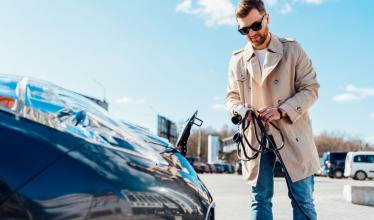Across many of Marston’s pubs, you’ll find Osprey rapid charging sites. The 100th charging site has just been announced and was installed as part of a plan to install 400 chargers across 200 sites, supporting the UK’s rapidly expanding infrastructure requirements. All of these chargers are accessible via Zap-Pay.
The nationwide partnership will remove more than eight tonnes of harmful NOx from UK roads annually by encouraging more people to use EVs. The rollout, which started in November 2018, has already prevented an estimated 1.15 tonnes of harmful NOx from polluting UK roads. Eight tonnes of NOx is equivalent to the annual mileage of around 8,759 Euro-6 compliant diesel cars. The full rollout is due to be completed by 2022.
Ian Johnston, CEO of Osprey, said: “With the ban on the sales of new petrol and diesel cars less than 10 years away, it’s crucial to support EV drivers with the infrastructure that they want – rapid, convenient and accessible to all. Our partnership with Marston’s will continue to meet the needs of EV drivers and allow them to enjoy great food and drink facilities while they top up.”
Each Osprey rapid charger is powered by 100% renewable energy and has space for two cars to charge simultaneously. Customers visiting the sites can access the rapid charge points without the need for membership or subscription and can initiate charging using Zap-Pay or a contactless payment method.
Customers can charge while they head inside for a drink and a bite to eat, something that’s important to many owners of electric vehicles.
Andy Kershaw, Head of Property at Marston’s, said: “The Marston’s 100th rapid charging site installation represents a significant milestone towards our goal to become the UK’s most environmentally efficient pub business. The support and commitment of our infrastructure delivery and operating partner, Osprey, has been crucial to achieving this nationally, without disruption to our day-to-day operations.”



